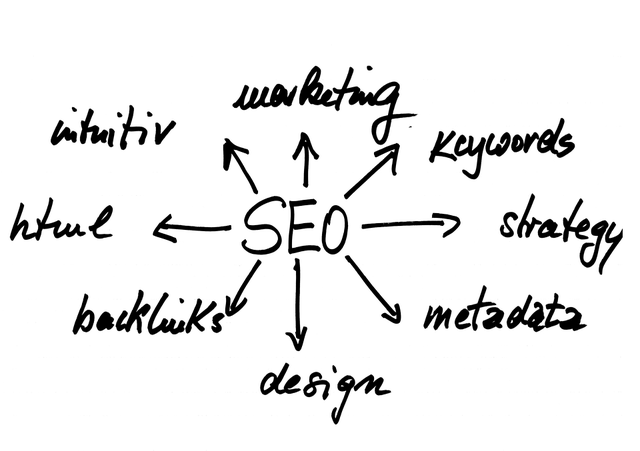Understanding E-commerce SEO highlights the critical role of optimization in online marketplaces. Key strategies include keyword research using tools like Google Keyword Planner, integrating keywords naturally into product titles and descriptions (e.g., SEO tips for ranking higher), optimizing page speed and accessibility, leveraging user-generated content (UGC), building quality backlinks from authoritative sources, implementing Local SEO for physical stores with online presences, and tracking performance metrics via Google Analytics and Search Console to adjust strategies accordingly (SEO tips). These practices enhance search engine rankings, drive qualified leads, and improve overall user experience.
E-commerce websites are the new storefronts of our digital age, but standing out in a crowded online market can be challenging. Discover SEO tips for ranking higher and maximizing your e-commerce potential. From understanding the fundamentals of e-commerce SEO to leveraging user-generated content (UGC), optimizing product pages, and building quality backlinks, this guide covers essential strategies to boost visibility and drive sales. Learn how to enhance technical SEO, cater to local customers, and track your performance to stay ahead in the competitive e-commerce landscape.
Understanding E-commerce SEO: The Basics

Understanding E-commerce SEO: The Basics
In the dynamic world of e-commerce, success online hinges on one crucial factor: search engine optimization (SEO). With millions of websites vying for attention, effective SEO tips for ranking higher become indispensable tools for visibility and growth. Optimizing your e-commerce website isn’t just about attracting more traffic; it’s about ensuring that the right audience finds you when searching for products or services relevant to your business.
SEO for e-commerce involves a strategic approach to enhancing your online presence through keyword research, high-quality content creation, and technical optimizations. By integrating relevant keywords naturally throughout your product descriptions, titles, and meta tags, you can improve your search engine rankings and drive more qualified leads. Additionally, focusing on mobile optimization, fast loading times, and a seamless user experience encourages both search engines and potential customers to view your site favorably.
Keyword Research for Product-Based Sites

Conducting thorough keyword research is a cornerstone of effective SEO strategies for e-commerce websites, especially those focused on products. Understanding your target audience’s search behavior is crucial to standing out in a crowded online marketplace. Begin by identifying high-volume, relevant keywords that potential customers might use when searching for your products. Tools like Google Keyword Planner or SEMrush can provide valuable insights into search trends and competition levels.
Focus on long-tail keywords—specific phrases with lower search volume but higher intent. These often translate to real customer queries, offering a competitive edge by targeting more precise searches. By incorporating these keywords naturally into your product titles, descriptions, and content, you enhance both the relevance and visibility of your e-commerce site, thus boosting its chances of ranking higher in search engine results pages (SERPs) under relevant search queries.
Optimizing Product Pages for Visibility

Optimizing product pages is a crucial step in enhancing your e-commerce website’s visibility and ranking on search engines. Each product page should be tailored with specific SEO tips for ranking higher, ensuring that both search algorithms and potential customers can easily find what they’re looking for. Start by crafting compelling and unique titles and meta descriptions for each product, incorporating relevant keywords naturally. This provides a clear context to search engines about the content on the page.
Additionally, high-quality images with alt tags are essential. These tags help search engines understand the visual content, improving accessibility and relevance. Regularly updating product descriptions with fresh, informative content that includes keywords can also boost your rankings. Remember, the goal is to create a user-friendly experience while incorporating SEO strategies seamlessly, ensuring your e-commerce site stands out in a competitive online market.
Leveraging User-Generated Content (UGC)

Leveraging User-Generated Content (UGC) can be a powerful SEO tip for ranking higher on e-commerce websites. UGC includes reviews, ratings, social media posts, and comments from customers who have interacted with your products. By integrating these authentic experiences into your website’s content strategy, you add valuable, relevant keywords that both search engines and potential buyers find compelling. Not only does UGC enhance the credibility of your online store, but it also drives engagement by showcasing real-life uses and benefits of your offerings.
When implementing UGC, ensure that it is diverse and high-quality. Encourage customers to share their honest feedback and experiences through various channels like product reviews, social media posts, or even video testimonials. Repurpose this content across your website, optimizing it for relevant keywords and linking it back to specific products or categories. This strategy not only improves your SEO efforts but also fosters a sense of community around your brand, leading to increased customer loyalty and conversion rates.
Technical SEO Considerations for Speed and Accessibility

E-commerce websites aiming to rank higher on search engines can’t overlook Technical SEO, especially when it comes to speed and accessibility. Optimizing page load times is a crucial SEO tip for improving user experience and boosting rankings. Faster sites not only reduce bounce rates but also encourage visitors to browse more, increasing the likelihood of conversions. To enhance speed, merchants should compress images, enable browser caching, and leverage content delivery networks (CDNs). These strategies ensure that web pages load swiftly, even on mobile devices, which is essential for retaining customers and improving search engine rankings.
Moreover, making your site accessible to all users, including those with disabilities, is not only a matter of ethical responsibility but also an SEO consideration. Implementing structured data markup, ensuring proper heading hierarchy, and providing alternative text for images are effective ways to improve accessibility. Such measures not only cater to a broader audience but also signal to search engines that your site is well-structured and user-friendly, potentially leading to better rankings under specific SEO tips and strategies targeting diverse users.
Building Quality Backlinks for Authority

Building quality backlinks is a crucial SEO tip for e-commerce websites aiming to rank higher. These links, coming from authoritative and relevant sources, signal to search engines that your site offers valuable content and deserves a higher position in results. Focus on acquiring backlinks from reputable industry leaders, influential blogs, and high-ranking pages within your niche. This strategic approach ensures your website gains credibility and trustworthiness in the eyes of search algorithms.
Engage in guest blogging, offer exclusive resources or studies, and collaborate with influencers to earn these valuable links naturally. Additionally, ensure that any backlinks you acquire are contextual and relevant—the content around the link should be closely related to your e-commerce niche. This relevance not only boosts your site’s authority but also improves user experience, which is a key factor in modern SEO strategies for e-commerce websites.
Local SEO Tips for Physical Stores with Online Presence

For physical stores that also operate an online presence, Local SEO tips are a powerful tool to enhance visibility and attract more customers. One key strategy is to ensure your Google Business Profile (formerly Google My Business) listing is complete and optimized. This includes accurately filling out all relevant categories, adding high-quality photos, and incentivizing customers to leave reviews. By claiming this listing, you gain direct access to local search results, allowing potential buyers in your area to discover your store easily.
Additionally, incorporating location-based keywords into your website content can significantly boost your SEO efforts. Mentioning specific city names or regional terms relevant to your business can signal to search engines that your site is focused on serving a particular geographic area. This local focus is crucial for ranking higher in local search queries, driving targeted traffic from nearby customers looking for products or services you offer.
Tracking and Analyzing E-commerce SEO Performance

Tracking and analyzing e-commerce SEO performance is a crucial step in implementing effective SEO tips for ranking higher. Tools like Google Analytics, Search Console, and specialized e-commerce analytics platforms offer valuable insights into user behavior, traffic sources, and key performance indicators (KPIs). By monitoring these metrics, you can identify areas of success as well as opportunities for improvement. For instance, tracking conversion rates, average order value, and bounce rates can help you understand the effectiveness of your product pages, checkout process, and overall website design.
Regular analysis allows you to stay agile and responsive to market changes. You can quickly adapt your SEO strategy based on data-driven insights, ensuring that your e-commerce site remains competitive in a dynamic digital landscape. Additionally, analyzing competitor performance can provide valuable SEO tips for ranking higher by identifying their successful strategies and areas where they may be falling short. This not only helps you stay ahead but also ensures your website offers the best possible user experience, ultimately driving better search engine rankings and increased sales.
